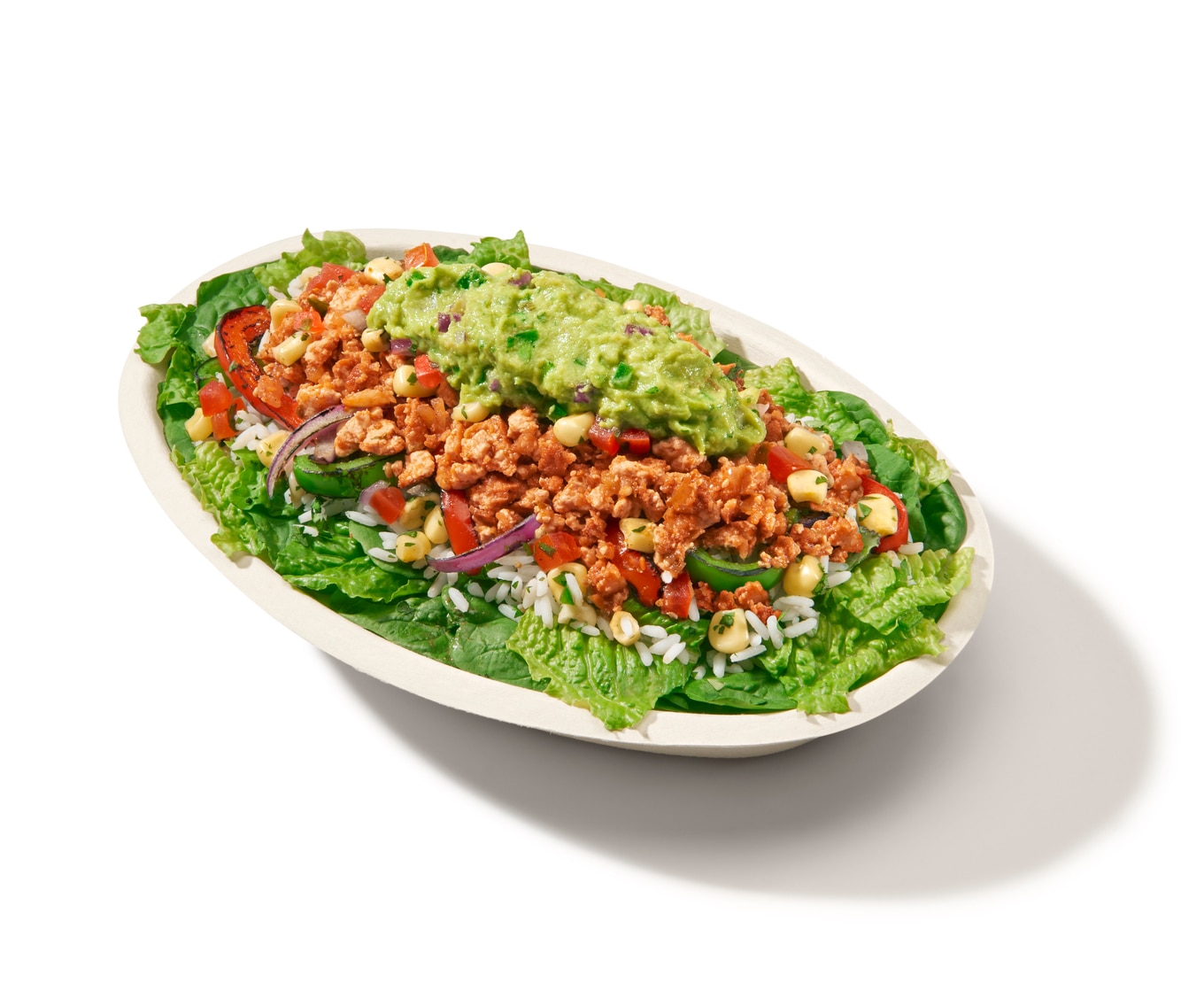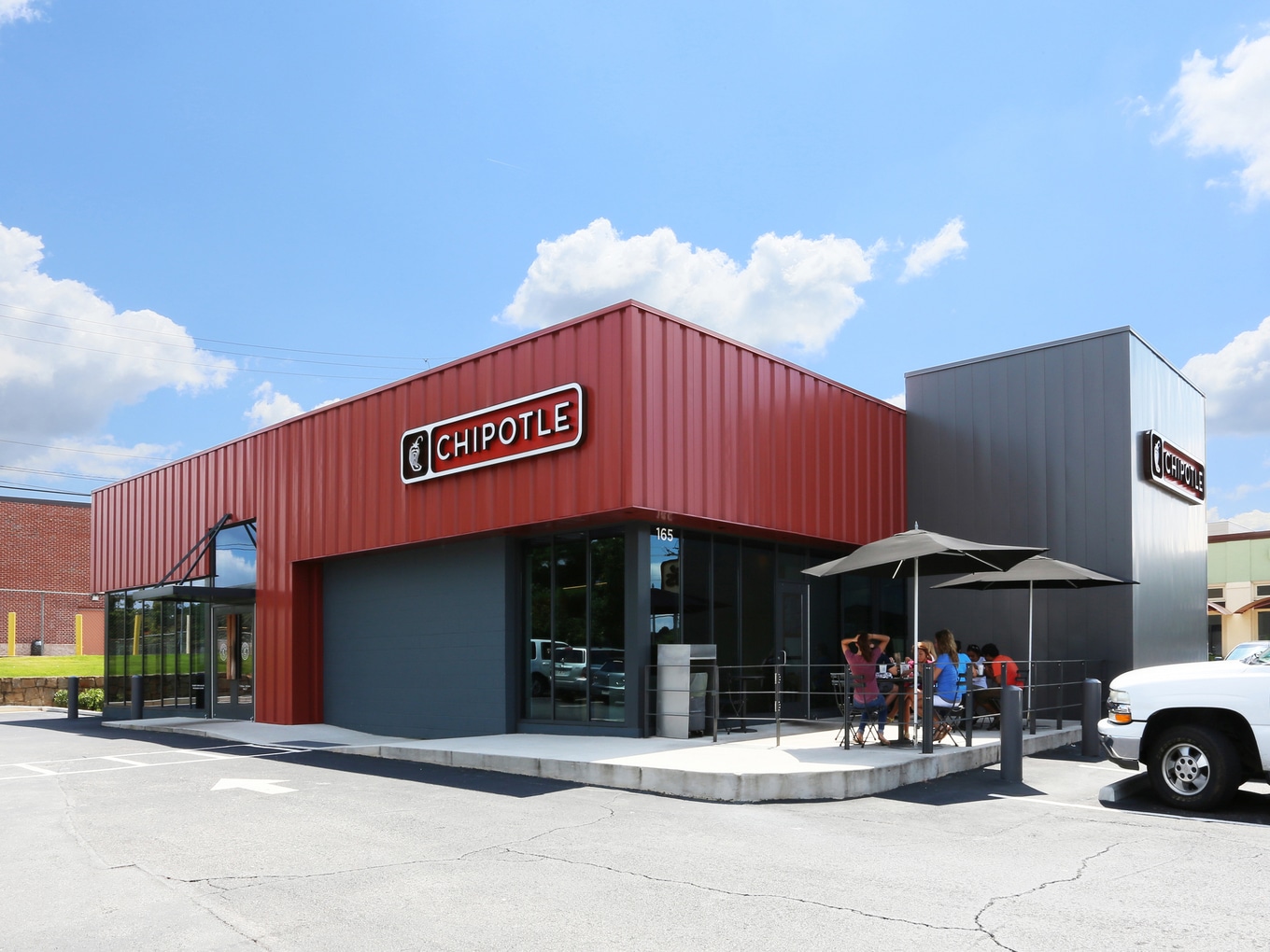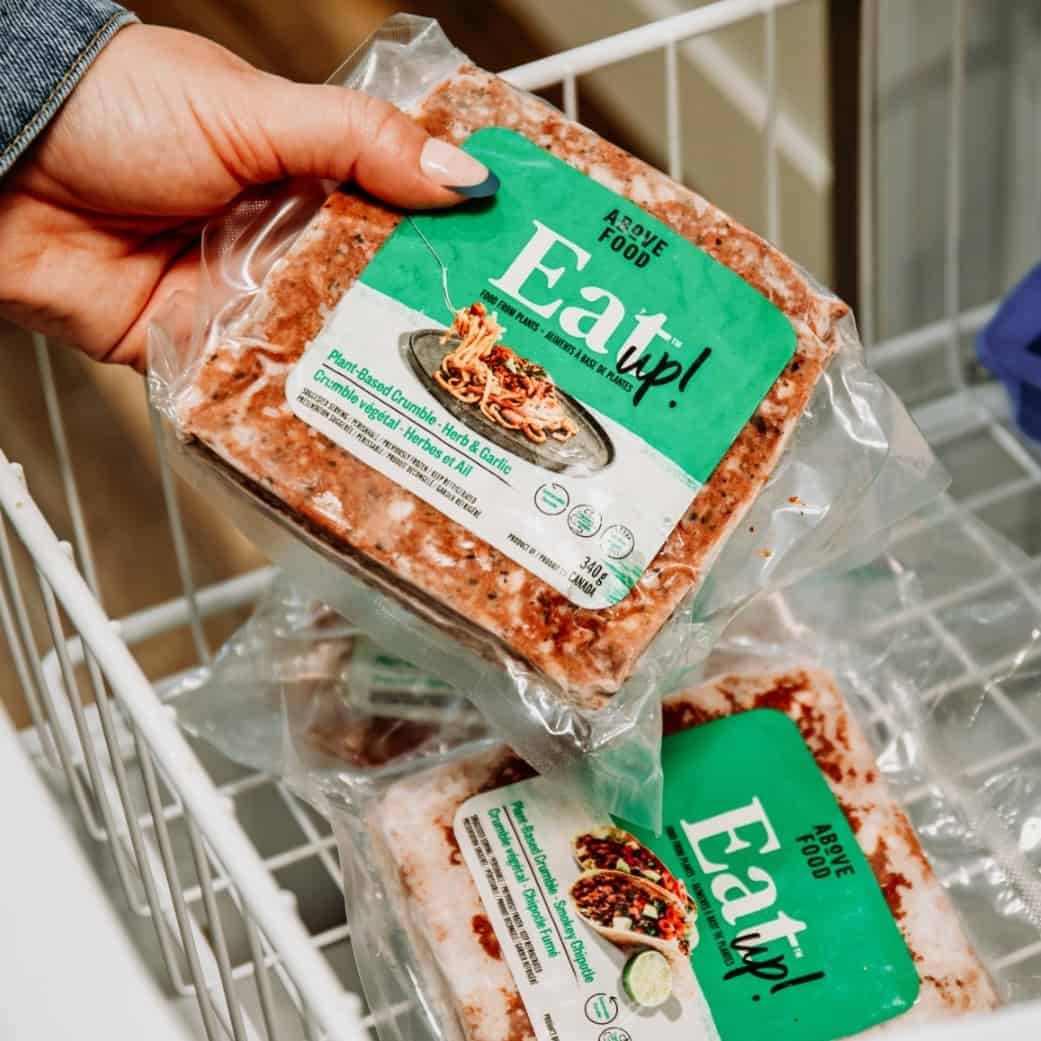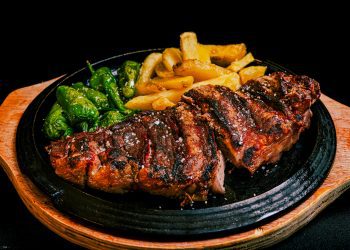Chipotle has lofty plans to expand to 7,000 locations across North America. How will plant-based protein play a role in mitigating its carbon footprint?
The first Chipotle Mexican Grill opened in 1993 in Denver, CO and since then, the fast-food chain has gained a reputation for pioneering sustainable practices with its “Food with Integrity” program. Last year, Chipotle celebrated the opening of its 3,000th location and announced plans to open 7,000 outposts in North America.

But as the climate crisis rages on, how can Chipotle aggressively expand without burning up the planet? Plant-based proteins will play a part of the sustainability plan—which also includes using cactus leather for seating, recycled rice husks as art pieces, and more—to move the chain through its next growth phase.
“We proudly offer sustainably-minded diners thousands of plant-based entrée configurations featuring Sofritas and Veggie (guac) protein options,” Stephanie Perdue, Vice President, Brand Marketing, Chipotle, tells VegNews. “Growing our plant-based category’s share of orders, which currently includes sofritas and vegetarian bowls featuring guac, can help reduce our carbon footprint.”

** Click here to read the full-text **









